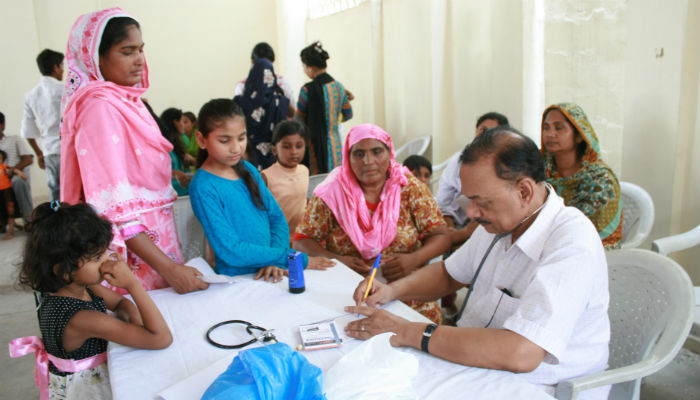Sindh winds up its hepatitis control programme
Pakistan is reported to be the second highest bearer of hepatitis C patients after China
May 07, 2018

The Sindh government has announced to wind-down its hepatitis control programme and said it would now provide funds to Aga Khan University Hospital (AKUH) for the screening, diagnosis, and treatment of hepatitis C patients in the province.
“Today, we have signed an agreement with Aga Khan University Hospital, under which we would provide Rs219 million to the network for the screening, diagnosis, and treatment of thousands of hepatitis C patients, initially in the Larkana and Nawabshah districts of Sindh,” Health Secretary Dr Fazlullah Pechuho said.
Earlier, Pechuho had signed the agreement with AKUH Chief Executive Officer Johannes (Hans) Theodorus Kedzierski.
Dr Pechuho announced that the government has decided to wind up the Sindh Hepatitis Control Programme, saying the funds which used to be allocated for the programme in the Annual Development Programme would now be given to the AKUH for the eradication of the disease from the province.
According to AKUH officials, Pakistan is the second highest bearer of hepatitis C patients after China in the world and, as per some conservative estimates, 20-22 million people in Pakistan are infected with hepatitis B and C.
Dubbed as “silent killer”, hepatitis C is a viral infection of the liver and it spreads through infected blood and exchange of some other body secretions, but most of the people infected with the virus remain oblivious of their disease until it irreversibly damages their liver and ultimately causes death.
Dr Pechuho said that initially the AKUH would screen, diagnose and treat patients in the Larkana and Nawabshah districts and in the later stages more funds would be provided to the health network to extend this service to other districts of the province, including Mithi, Shikarpur, Khairpur and ultimately Karachi.
Giving reasons for selecting the AKUH for taking over the tasks of the programme, he said the programme had failed to yield positive results and there were issues with its management, due to which it was decided that the government should enter into a partnership with Aga Khan Hospital for the treatment of hepatitis C patients.
“Sindh Hepatitis Control Programme was not yielding positive results despite huge funding as people were getting medicines for a month and then they would stop getting the treatment. This was also resulting in resistance and other complications for the patients and causing a bad name to the government also.”
On the other hand, Kedzierski said they were working with the government as well as with NGOs in Sindh and other provinces to help in their capacity building.
He added that this partnership with the Sindh government for the elimination of hepatitis C would benefit not only the people of this province but also those living in other provinces of the country as data collected through this programme would be used for research also.
He maintained that the AKUH had the best team of liver disease physicians and surgeons at the moment and, with their help, they would try to manage hepatitis C and work on its prevention, which was the best available strategy to eliminate the viral disease from the country.
Originally published in The News









